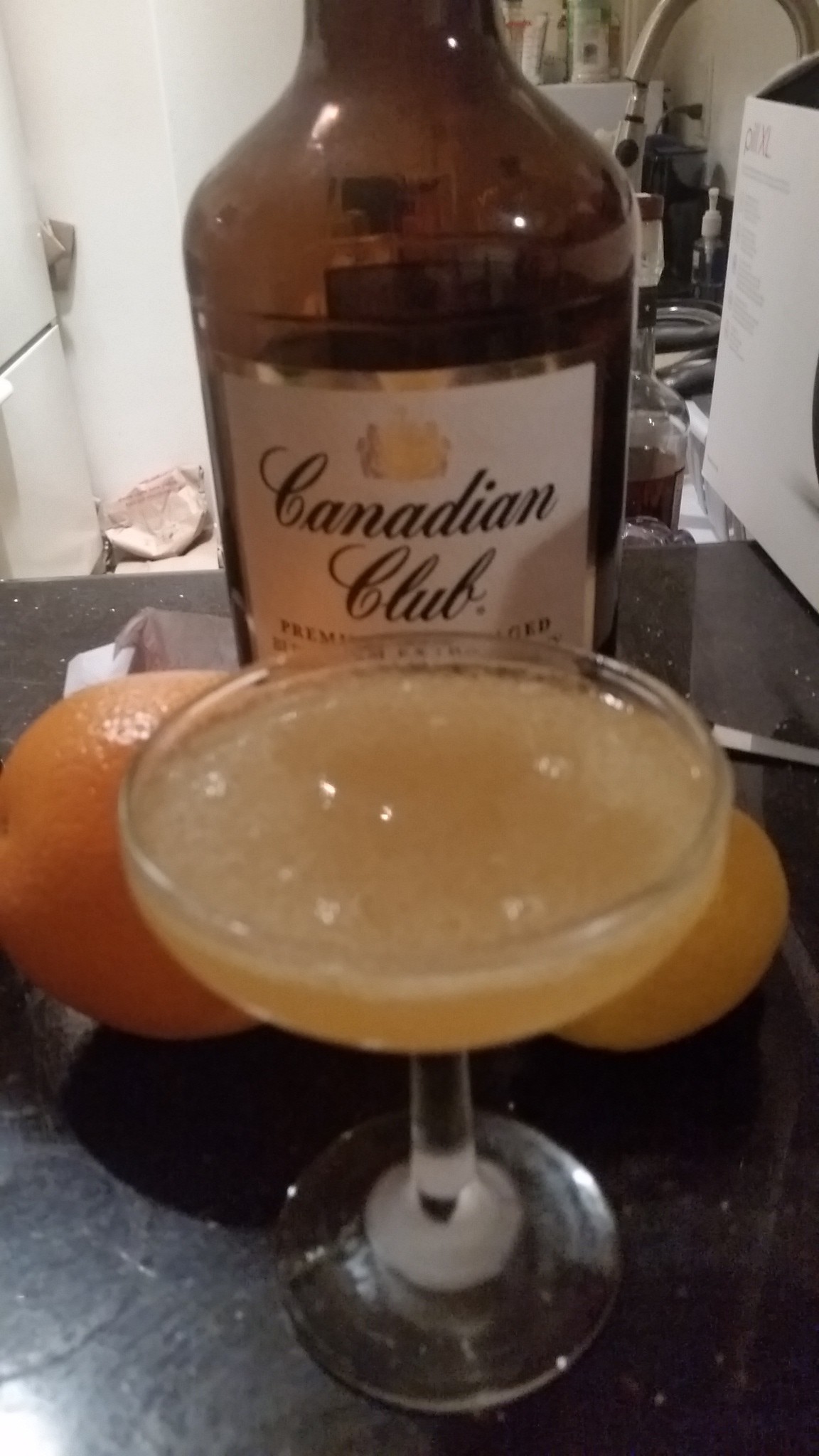Drink of the Week: Tiger Juice
 First of all, let’s get one thing straight: no tigers were juiced in the making of this DOTW post. Moreover, I’m pretty sure, the makers of Tiger’s Milk bars don’t actually have the courage to milk actual members of the feline genus panthera to make their product.
First of all, let’s get one thing straight: no tigers were juiced in the making of this DOTW post. Moreover, I’m pretty sure, the makers of Tiger’s Milk bars don’t actually have the courage to milk actual members of the feline genus panthera to make their product.
Now that we’ve got that straightened out, it’s my sad duty to report that I have no actual information about the provenance of this week’s drink or its rather silly name. It doesn’t appear to have been in any of the more famous classic cocktail books, though it’s certainly simple and straightforward enough that somebody must have made this drink back in the day. Who created it or where it came from before it lived in various places on the Internet is a mystery to me.
The real mystery, though, is why it’s not better known. I think Tiger Juice is another example of a cocktail alchemy at it’s best. Three simple ingredients that definitely add up to something greater than the sum of their parts. It’s juicy, refreshing, a bit alcoholic, and 100% tiger-cruelty free.
Tiger Juice
1 1/2 ounce Canadian whiskey
1 ounce fresh orange juice
1/2 ounce fresh lemon juice
Combine the ingredients in a cocktail shaker with lots of ice. Shake vigorously and strain into a chilled cocktail glass. Sip and appreciate the fact that you are both adjusting your attitude and getting a good chunk of your daily requirement of vitamin C, without any added sugar.
****
The benefits of red wine notwithstanding, I’m willing to bet that Tiger Juice just might the be the healthiest alcoholic beverage yet developed. The relatively high amount of sugars present in the otherwise very healthy OJ are balanced out by lemon juice, which I’m guessing has at least many goodies for your body with less than half the sugar calories.
Of course, the downside of all that would be an overly tart flavor profile. Regular readers might remember that I’m a bit of a baby about that. To my utter surprise, however, I found that simply wasn’t the case. Combining the juices with Canadian Club — still my choice for the best bargain in booze at about $15-$18.00 for 1.75 ml bottle — yielded a drink that was neither particularly sweet nor noticeably tart. Instead, it was tasty, refreshing and just boozy enough to be interesting. For low calorie tipples, I’d place this next to something like a vodka martini among sophisticated drinks that go down very easy.
That did change, though, when I tried other types of whiskey. Noticing that some online recipes called for bourbon, I found the sweetness of Maker’s Mark acted like salt on a melon in reverse, emphasizing the tart flavors in a way I didn’t particularly love.
While most recipes wisely called strictly for Canadian booze, I figured that rye, Canadian whiskey’s close cousin, might be a worthy substitution. The usually outstanding Alberta Dark Rye, which is actually from Canada, was actually too flavorful and overpowered the drink. Old Overholt, on the other hand, proved its versatility as the craft bar’s default rye and worked reasonably well…but I still preferred the gentle simplicity of the Canadian Club.
And that’s the thing. Ordinary Canadian whiskey gets a bad rap among the cocktail cognoscenti because it admittedly doesn’t boast the complex flavor profile of a really good bourbon or rye. The thing is, sometimes you want a little flavor, not a lot. And, yeah, I don’t drink them as often as I used to, but there are times when a vodka martini is just the thing. Now, maybe there are going to be times when Tiger Juice is just the thing.
Related Posts
Posted in: Food & Drink, Lifestyle, Vices
Tags: Alberta Dark Rye, Canadian Club, Canadian whiskey, cocktails, Drink of the Week, Happy Hour, Tiger Juice





